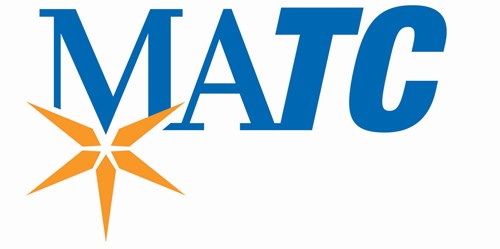Milwaukee Area Technical College Fills the Gap
Milwaukee Area Technical College, known as MATC, is a comprehensive technical college that offers educational and training opportunities and services to its diverse community through collaboration with partners to advance the lives of its students.
Milwaukee Area Technical College, known as MATC, is a comprehensive technical college that offers educational and training opportunities and services to its diverse community through collaboration with partners to advance the lives of its students.
MATC’s goal is to train students for the skills needed to fill jobs in the Milwaukee area and beyond. It offers 170 career-centered programs, including degrees, diplomas and apprenticeships. Within the precision machining field, MATC offers programs for CNC Swiss turning, CNC setup operations, CNC programming and a 2-year technical program for Tool & Die.
“Every program that the college offers has an advisory committee with representatives from companies in those industries,” says Tom Olson, MATC machining instructor. “These committees help guide our programs, and they grow and change as the community’s needs change. In my 25 years here, I’ve seen the programs change with the natural transitions in the field.”
According to Mr. Olson, the average student in MATC’s multiple precision machining programs is between 26 and 28 years old and is looking to strengthen skills. Prospective program participants must pass a basic pre-entry exam to begin the programs.
“We have students from a variety of backgrounds and ages in our programs,” Mr. Olson says. “Overall, we like to have students who are motivated to learn and improve.”
The programs instruct on basic machine and problem-solving skills.
“In the machine labs, we can teach students how to set up a machine, change tools, read a micrometer and adjust equipment,” Mr. Olson explains. “But we can’t teach production because it’s not economically possible to run production in a school setting.”
MATC machining students learn the value of the equipment and tooling, and tour a machine shop.
“I tell the students that when they’re on the machine shop tours, they should ask any questions they have since they’re there to learn. The tour is a great way for them to see real work environments,” Mr. Olson says. “We’re still facing that stigma of shops being dark, dirty places. But in reality, when you visit a modern machine shop, they’re bright and clean.”
MATC’s machining program advisory committees have several local PMPA members on them, helping guide the program, allowing their shops to be toured, hiring program graduates and continuing training for their current employees.
“We have a great relationship with PMPA that we look forward to continuing,” Mr. Olson says. “Local PMPA members help us send students to trade shows and conferences as well as help out with regular program needs. They regularly call and ask for me to send them our graduates.”
MATC fills the education and training gaps in cooperation with PMPA members by educating new machinists and training current employees in increasing skills and knowledge.
“I would encourage other PMPA members to talk with area technical colleges to work together for well-trained employees. We fill open slots during classes for continued training of industry members who want to upgrade their skills,” Mr. Olson says. “Local chapter members can work together to arrange training with local schools to share costs. There are many options that technical colleges, like MATC, can offer to PMPA members who are looking to have well-trained employees.”
Milwaukee Area Technical College is located at 700 W. State Street, Milwaukee, Wis. 53233. Phone: 414-297-6286. Website: matc.edu.
Read Next
Do You Have Single Points of Failure?
Plans need to be in place before a catastrophic event occurs.
Read More5 Aspects of PMTS I Appreciate
The three-day edition of the 2025 Precision Machining Technology Show kicks off at the start of April. I’ll be there, and here are some reasons why.
Read MoreA Tooling Workshop Worth a Visit
Marubeni Citizen-Cincom’s tooling and accessory workshop offers a chance to learn more about ancillary devices that can boost machining efficiency and capability.
Read More















.jpg;maxWidth=300;quality=90)



